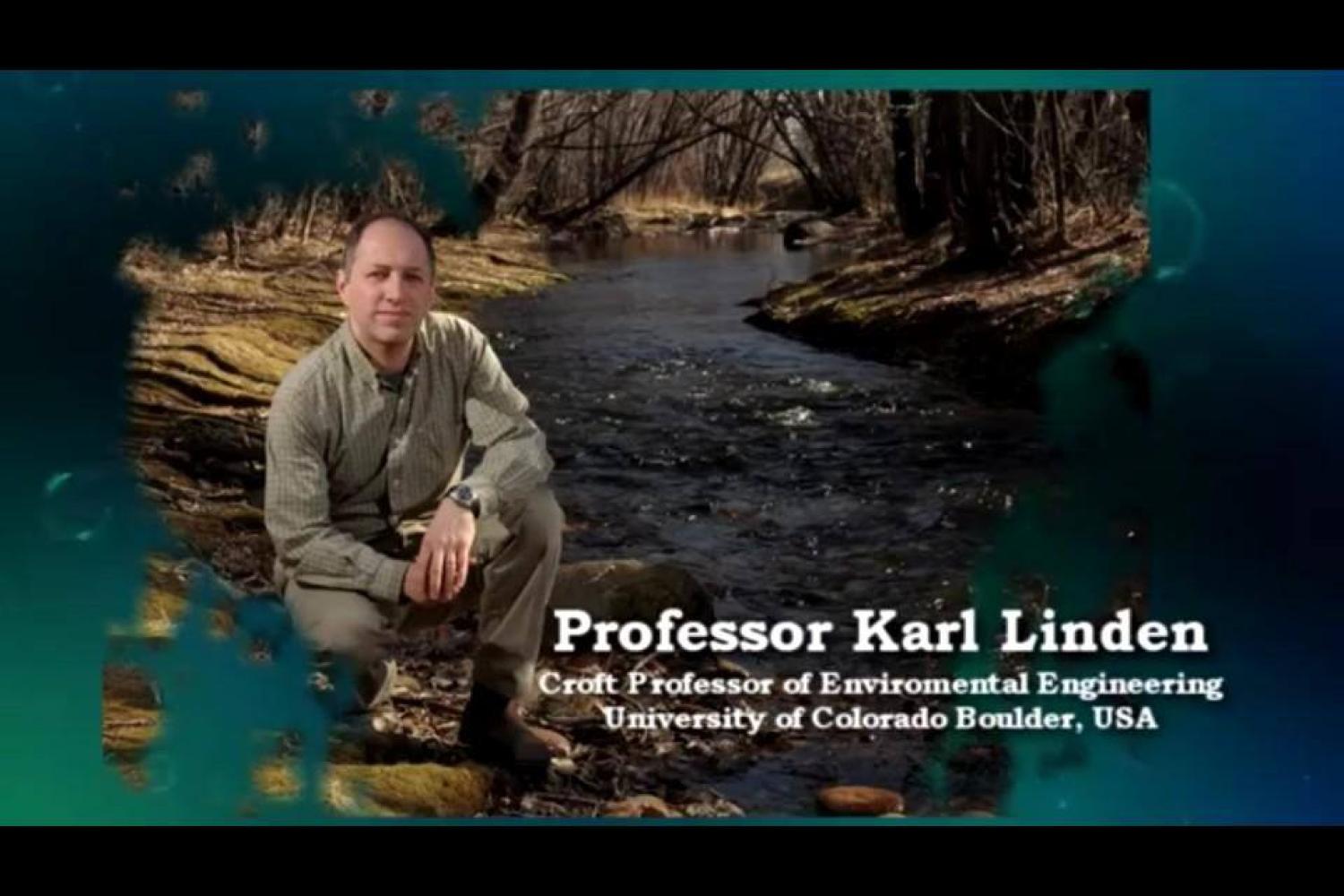Linden named WateReuse Person of the Year
Karl Linden, Helen and Huber Croft Professor of Environmental Engineering, was recently named WateReuse Person of the Year by the WateReuse Association at their annual award ceremony in Dallas.
According to the organization, Linden was honored for his many contributions to research and education in water reuse over more than a decade.
“He developed and teaches a graduate class in Sustainable Water Reuse at the University of Colorado Boulder and has led numerous projects funded by the WateReuse Research Foundation, with a specialty in advanced disinfection and oxidation processes.”
In video interviews, several of Linden’s colleagues spoke highly of his work and contributions to the field.
“I had the pleasure to work with Karl Linden for a long while, starting in 1994 as a graduate student at UC Davis,” said Andy Salveson of Carollo Engineers. “Over those 20 years, I’ve watched Karl break new ground, solve difficult problems and provide leadership to each new generation of engineering graduates.”
Dr. Judy Blackbeard of Melbourne Water in Melbourne, Australia, thanked Linden for his publication of results on a surrogate for virus inactivation by ozonation of secondary effluent.
“This research has supported the implementation over a 100-million-gallons-per-day Class A recycle system at the eastern treatment plant,” she said. “This publication will also support the development of the center’s national ozone validation protocol for recycled water.”
Dr. Mark O’Donohue of the Australian Water Recycling Centre of Excellence added that Linden’s work to create an industry-academic partnership to help Melbourne Water develop their water recycling portfolio “was instrumental in helping develop a consistent national approach to ozone validation in Australia.”
At CU-Boulder, Linden teaches an undergraduate course on Fundamentals of Environmental Engineering and graduate courses in water reuse, UV processes in environmental systems, and water sanitation and hygiene. His other research interests include water and wastewater treatment processes (physical, chemical, and biological), environmental aquatic chemistry and ecological environmental engineering.
[video:http://www.youtube.com/watch?v=RMlIEyHjDB0]



